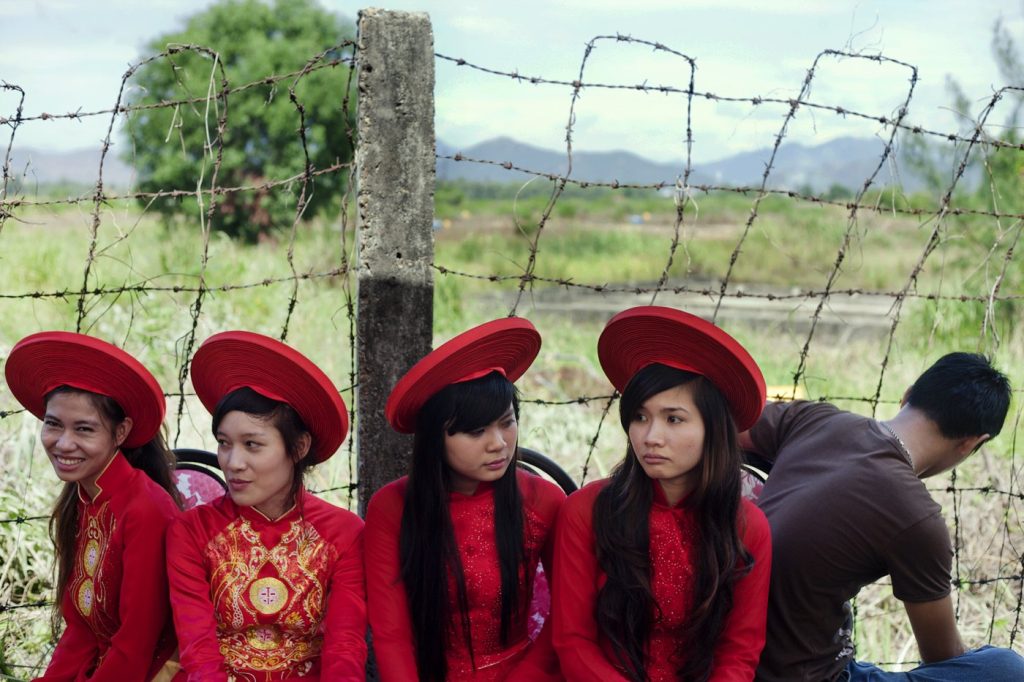HANOI, Vietnam (AP) — Work to clean up large quantities of dioxin-contaminated soil at Bien Hoa Air Base, a former American air base in southern Vietnam, faced interruption last month due to cuts in funding from the Trump administration. These budget reductions have severely impacted multiple humanitarian programs, including those aimed at removing unexploded American munitions, assisting war victims, and creating a museum exhibit that highlights U.S. efforts to address the Vietnam War's environmental damage.
These funding cuts pose additional risks to the health of thousands exposed to hazardous substances and threaten the fragile diplomatic relations between the United States and Vietnam. This relationship has become increasingly critical as the U.S. seeks support to counter China's growing influence in the region. Chuck Searcy, an American Vietnam War veteran and humanitarian worker, expressed concern, stating, "It doesn’t help at all," and emphasized that such actions send a negative message about the reliability of American support.
Initially, funding for the cleanup at Bien Hoa was frozen for roughly a week but subsequently restored. However, there remains uncertainty regarding the flow of funds and their management, considering the significant reduction in USAID personnel. Tim Rieser, an adviser to Senator Peter Welch, noted, "They have reversed a number of these arbitrary decisions, but we’re far from out of the woods." Funding for these programs has historically been a collaborative effort led by past U.S. politicians, such as retired Senator Patrick Leahy, who was pivotal in securing resources for Vietnam War remediation efforts.
As Vietnam prepares to commemorate the 50th anniversary of the Vietnam War's end and the 30th anniversary of normalized relations with the U.S., the aid interruptions are particularly concerning. The relationship has evolved over the decades, especially as both countries have increased their defense and security cooperation in light of China's regional assertiveness. Notably, in 2023, Vietnam elevated its partnership with the U.S. to the status of "comprehensive strategic partnership," aligning it with its traditional partners, Russia and China.
The administration’s funding freeze began with an executive order from Trump on Inauguration Day, which mandated a review of all foreign assistance and development funding, claiming much of it was wasteful and politically motivated. Despite this, Secretary of Defense Pete Hegseth affirmed support for collaborative efforts regarding war legacy issues in a call with his Vietnamese counterpart shortly after the freeze.
On February 7, just 20 days after the executive order, the U.S. Agency for International Development (USAID) faced the cancellation of over 83% of its contracts and a massive staff reduction. This situation halted ongoing efforts to remediate contaminated soil at Bien Hoa, which included 500,000 cubic meters (650,000 cubic yards) of soil affected by Agent Orange, a herbicide linked to serious health issues, including cancer and birth defects.
The current status of these crucial war legacy projects remains ambiguous. While USAID has indicated that three contracts for dioxin remediation at Bien Hoa are active, the State Department has been vague regarding the duration of the project’s shutdown and the timeline for resumption. Foreign Ministry spokesperson Pham Thu Hang articulated concerns about the potential implications of cutting around $200 million per year in American funding for these programs.
Experts warn that such funding cuts could undermine decades of diplomatic progress in rebuilding ties with Vietnam. Nguyen Khac Giang, a political scientist in Singapore, highlighted that while trust between the two nations has gradually built up over time, it is fragile and easily dismantled. Former Senator Leahy criticized the decisions made by the Trump administration, indicating that officials disengaged from understanding the importance of these programs could jeopardize a strategic partnership in a geopolitically significant region.
As the situation evolves, the implications of the funding cuts on U.S.-Vietnam relations remain to be fully understood, but there is no doubt that this abrupt action could have profound consequences for future collaborations.










